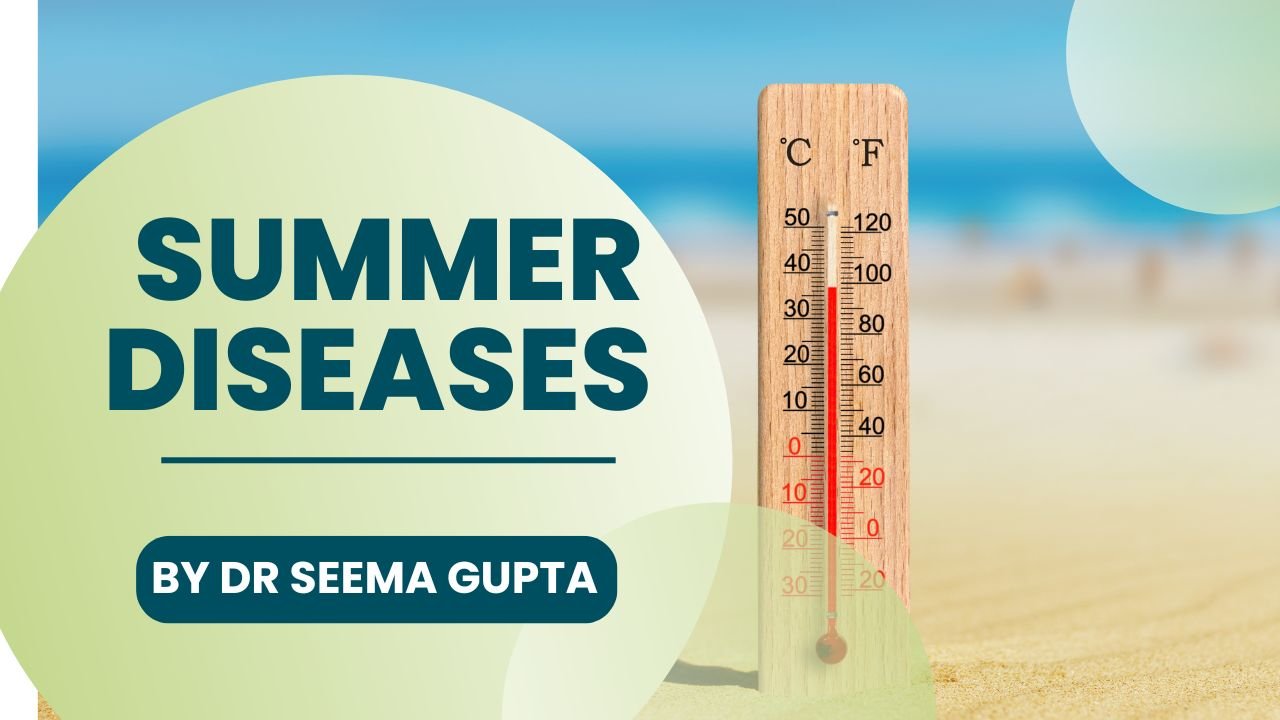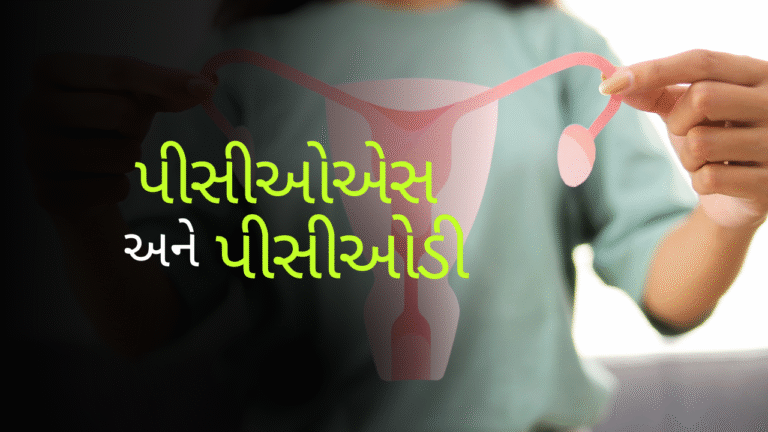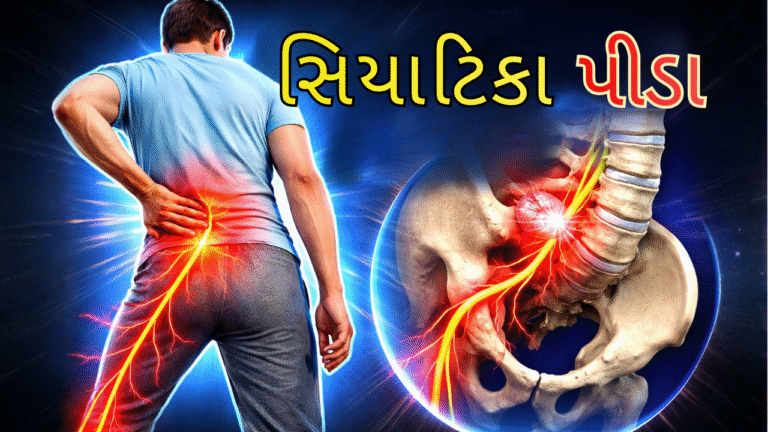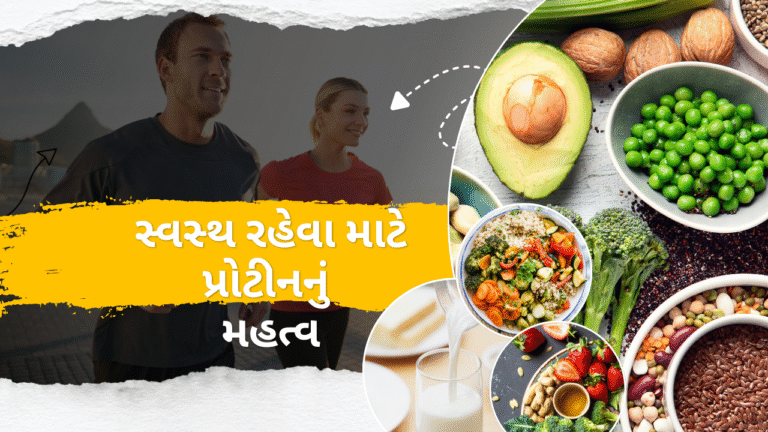Summer Diseases
Summer Health Risks and Naturopathy-Based Prevention Strategies
Welcome to Saffron Educational and Medical Foundation. Our focus today is understanding common heat-related health problems, their signs, causes, and prevention using simple naturopathy techniques and lifestyle changes.
Understanding Summer Health Hazards
Summer brings increased heat and humidity, which can trigger various health issues. Here are the major concerns:
- Heat Stroke

- Symptoms:
- Heavy sweating
- Weakness
- Dizziness
- Headache
- Nausea, vomiting
- High body temperature
- Confusion, seizures, or possible loss of consciousness
- Causes:
- Prolonged exposure to high temperatures
- Physical activity during peak sun hours
- Prevention:
- Stay hydrated
- Avoid outdoor activities between 10:00 AM and 4:00 PM
- Wear protective clothing and sunscreen
- Waterborne Diseases

- Cholera & Typhoid:
- Caused by bacterial infections from contaminated food and water.
- Symptoms:
- Diarrhea
- Dehydration
- High fever
- Abdominal pain
- Prevention:
- Use clean, safe drinking water
- Maintain food hygiene
- Vector-Borne Diseases

- Malaria, Dengue, Chikungunya:
- Transmitted through mosquito bites
- Symptoms:
- High fever
- Severe headaches
- Joint and muscle pain
- Prevention:
- Mosquito control (using nets, repellents)
- Avoid stagnant water
- Skin Problems
- Common Issues:
- Sunburn
- Painful, blistering skin
- Allergic reactions
- Prevention:
- Apply sunscreen
- Wear protective clothing
- Use natural skin soothers like aloe vera
- Air Pollution-Related Health Conditions
- Increased pollution during hot months can worsen respiratory conditions.
- Precaution:
- Avoid peak pollution hours
- Use masks if necessary
Dehydration: Core Summer Risk

Dehydration is among the most widespread risks during summer. It occurs when the body loses more fluids than it takes in.
Common Signs of Dehydration:
- Dry skin
- Sunken eyes
- Low blood pressure
- Dizziness or fainting
- Constipation
- Urinary tract infections (UTI)
Causes:
- Sweating due to heat
- Insufficient water intake
- Vomiting or diarrhea
- High blood sugar in diabetic patients
Diagnosis:
- Observe skin dryness
- Check blood pressure
- Notice signs like fatigue and headaches
Naturopathic Hydration Strategies
- Drink 8–10 glasses of water daily
- Include hydrating foods like:
- Watermelon
- Cucumbers
- Oranges
- Papaya
- Mint tea
- Use Rehydration Solutions:
- Natural electrolyte solutions
- Fresh fruit juices with added salts
Quick Relief Techniques:
- Hydrotherapy:
- Water soak treatments to control body temperature
- Acupressure:
- Specific hydration points can improve fluid absorption and temperature regulation
Managing Constipation and Digestive Issues
Constipation often increases in summer due to fluid loss and low fiber intake.
- Prevention:
- Increase fiber through fruits and vegetables
- Drink sufficient water
- Practice light yoga or exercise
Sunstroke: The Most Serious Heat Condition
- Symptoms:
- Extremely high body temperature
- Unconsciousness
- Confusion
- Causes:
- Prolonged exposure to the sun without adequate hydration or protection
- Emergency Action:
- Move the person to a cool place
- Apply cool water to the skin
- Offer rehydration solutions
- Seek immediate medical help
Heat Exhaustion and Heat Cramps: Early Signs Before Sunstroke
While sunstroke is the most severe form of heat-related illness, there are milder conditions that act as early warnings:
- Heat Exhaustion
- Definition: A mild form of heat-related illness that occurs due to excessive loss of water and salts through sweating.
- Symptoms:
- Dizziness
- Excessive sweating
- Nausea
- Irregular heartbeat
- Dry skin and low blood pressure
- Weakness or sudden fainting
- Causes:
- High outdoor temperatures combined with humidity
- Wearing heavy or dark-colored clothing
- Physical exertion in hot weather
- Caffeine consumption reducing hydration
- Underlying health conditions such as heart disease, diabetes, or obesity
- Increased vulnerability in infants and elderly people
- Prevention Tips:
- Wear light-colored, loose-fitting clothes
- Avoid strenuous activities during peak heat hours
- Stay hydrated with traditional summer drinks that balance electrolytes (e.g., buttermilk, lemon water)
- Heat Cramps
- What They Are: Painful muscle cramps due to excessive loss of salts and water through sweat.
- Where It Happens: Typically affects arms, legs, and abdominal muscles.
- Prevention and Relief:
- Replenish lost fluids with natural electrolyte solutions
- Rest in a cool environment
- Gentle stretching or massage for muscle relief
Skin Damage from Excessive Heat

Overexposure to sunlight without protection can lead to:
- Skin Burns and Blisters
- Peeling and Skin Damage
Preventive Measures:
- Apply sunscreen with adequate SPF
- Use protective accessories such as hats and sunglasses
- Avoid direct sun exposure whenever possible
Naturopathic Management for Heat-Related Illnesses

Saffron Educational and Medical Foundation emphasizes naturopathy as a holistic, drug-free approach to manage and prevent heat-related health issues.
Core Naturopathic Therapies:
- Hydrotherapy
- Cold Water Bath: Lowers body temperature during sunstroke or heat exhaustion.
- Cold Compress: Use wet cotton cloth on the forehead, chest, and feet to create a cooling effect and bring down internal body temperature.
- Diet Therapy
- Hydrating and Cooling Foods:
- Watermelon, cucumber, papaya
- Mint tea
- Buttermilk and other electrolyte-rich drinks
- Avoid:
- Excessively spicy foods
- Caffeine-heavy beverages that can dehydrate
- Hydrating and Cooling Foods:
- Acupressure
- Focus on hydration-related pressure points behind the ears, chest, and wrists to regulate temperature and fluid balance.
Naturopathy Checklist for Summer Wellness
- Drink 8–12 glasses of water daily.
- Carry natural rehydration drinks while traveling.
- Include fruits and vegetables with high water content in your daily meals.
- Schedule outdoor activities outside peak heat hours (preferably before 10:00 AM or after 4:00 PM).
- Regularly practice hydrotherapy and acupressure techniques under guidance.
Naturopathy for Digestive Health and Diarrhea Prevention in Summer
Apart from heat-related illnesses, summer conditions also increase the risk of digestive disorders, especially diarrhea. These issues are often triggered by food habits, infections, and hydration imbalance.
Common Digestive Disorders During Summer
1. Diarrhea
- Symptoms:
- Frequent loose stools
- Abdominal cramps
- Dehydration
- Weakness
- Dizziness
- Low blood pressure
- Possible kidney complications if ignored
- Causes:
- Contaminated food and water
- Bacterial, viral, or parasitic infections
- Acute gastroenteritis (inflammation of the stomach and intestines)
- Food poisoning
- Conditions Linked to Diarrhea:
- Cholera: Bacterial infection leading to severe diarrhea and dehydration.
- Irritable Bowel Syndrome (IBS): Chronic condition marked by abdominal discomfort and altered bowel habits.
- Malabsorption Syndrome: Intestines fail to absorb nutrients properly, leading to deficiencies alongside diarrhea.
- Emotional Stress: Affects gut health, triggering diarrhea in some individuals.
2. Nutrient Absorption Problems
- Malabsorption can lead to:
- Weight loss
- Fatigue
- Mineral and vitamin deficiencies
Dietary Triggers for Digestive Disorders
- Heavy, Greasy, and Cold Foods:
- Excessive consumption of oily or refrigerated foods can disrupt digestion.
- Spicy and Fried Foods:
- Overeating spicy, processed, or fried items increases the risk of intestinal upset.
- Emotional Stress:
- Mental health and gut health are linked. High stress may worsen digestive symptoms.
Naturopathic Approaches for Digestive Health and Hydration
At Saffron Educational and Medical Foundation, we emphasize easy-to-apply, natural methods for managing both heat-related and digestive issues:

1. Hydrating Foods and Drinks
- Recommended:
- Coconut water
- Lemon juice with salt and sugar
- Fresh fruits like watermelon, papaya, and cucumber
2. Acupressure Therapy
- Pressing specific body points can help regulate internal body temperature and improve digestive function.
- Areas include:
- Behind the ears
- Chest region
- Around the stomach area
3. Yoga Techniques
- Certain yoga asanas help reduce stress and regulate heat and digestion. Examples include:
- Pawanmuktasana (Wind-Relieving Pose)
- Setu Bandhasana (Bridge Pose)
4. Cooling Diet Practices
- Focus on naturally cooling foods that balance electrolytes and improve hydration.
- Avoid heavy, spicy, fried, or processed meals during peak summer months.
5. Home Remedies for Instant Relief
- For diarrhea and mild dehydration:
- Oral rehydration solution (ORS)
- Buttermilk with salt
- Mint and lemon water
Managing Vomiting and Nausea with Naturopathy: Summer Health Care Insights
Vomiting is a common symptom during summer due to multiple factors such as food poisoning, excessive heat exposure, stress, and infections. It’s not a disease by itself but a protective reflex triggered by the body to expel harmful substances.
Common Causes of Vomiting
- Food Poisoning:
Contaminated food can introduce harmful bacteria or toxins into the digestive system, causing vomiting, stomach cramps, and diarrhea. - Gastroenteritis:
Viral or bacterial infection leading to inflammation of the stomach and intestines. Accompanied by fever, diarrhea, and vomiting. - Heat Exhaustion:
High temperatures can lead to dizziness, nausea, vomiting, and dehydration. - Motion Sickness:
A balance disorder caused by signals from the inner ear, eyes, and muscles not aligning properly, resulting in nausea and vomiting. - Pregnancy (Morning Sickness):
Hormonal changes in early pregnancy may cause frequent nausea and vomiting. - Overeating or Fast Eating:
Consuming large or spicy meals too quickly can upset the stomach, leading to vomiting. - Stress and Anxiety:
Emotional triggers have a direct gut-brain connection, often manifesting as nausea or vomiting. - Medication Side Effects:
Antibiotics, painkillers, alcohol, or excessive caffeine can irritate the stomach lining and trigger nausea.
Natural Remedies for Vomiting and Nausea Relief
- Naturopathic Diet Solutions
- Lemon Juice with Honey: Balances stomach acid and soothes the digestive system.
- Coconut Water: Rehydrates the body and restores lost electrolytes.
- Rice Water: Boiled rice water helps calm the stomach and reduce vomiting.
- Banana: Easy to digest, high in potassium, restores gut health.
- Banana and Yogurt: Combines potassium and probiotics to restore gut-friendly bacteria.
- Naturopathic Therapies
- Hydrotherapy:
- Cold compress on the abdomen to relax stomach muscles.
- Cold water sips for gradual rehydration.
- Acupressure Points:
- Applying pressure on specific wrist points (such as the P6 acupressure point) helps manage nausea.
- Deep Breathing and Meditation:
- Reduces stress-related digestive issues, restores balance in the nervous system, and calms nausea.
- Suggested Light Foods for Recovery
- Easily digestible foods like:
- Plain rice
- Toast
- Apple sauce
- Bananas
- Avoid spicy, fried, or heavily processed foods to prevent further stomach irritation.
Quick Tips for Managing Vomiting During Summer
- Stay hydrated with small, regular sips of water or electrolyte drinks.
- Use herbal teas like ginger or mint to soothe the digestive system.
- Rest in a cool environment to avoid heat-related triggers.
- Manage stress through yoga and breathing exercises.
Common Causes of Fainting:
- Heat Exposure and Dehydration
Prolonged sun exposure and high temperatures can lead to heat exhaustion, causing dehydration, dizziness, and fainting due to electrolyte imbalance. - Hypotension (Low Blood Pressure)
A sudden drop in blood pressure reduces blood flow to the brain. This can be triggered by standing up too quickly, intense physical activity, or dehydration. - Anemia
Low red blood cell count or reduced hemoglobin leads to decreased oxygen supply to the brain, resulting in weakness and fainting spells. - Hypoglycemia (Low Blood Sugar)
Low glucose levels can cause dizziness, fainting, and disorientation. - Cardiac Conditions
Irregular heartbeat (arrhythmia), blocked arteries, or other heart-related issues can disrupt blood flow and cause syncope. - Neurological Disorders
Conditions like strokes may lead to episodes of unconsciousness or fainting. - Vasovagal Syncope
A sudden drop in heart rate and blood pressure triggered by emotional stress, pain, or standing for long periods.
Naturopathic First Aid for Fainting

When fainting occurs, immediate home remedies and preventive care can help stabilize the person and support recovery:
- Rehydration:
- Water and Electrolyte Drinks:
Encourage sipping water, coconut water, or homemade electrolyte solutions (water with salt and sugar). - Avoid Sugary or Caffeinated Drinks:
These can irritate the stomach and worsen dehydration.
- Body Positioning:
- Lay the Person Down:
Help them lie flat with legs elevated. This promotes blood flow back to the brain. - Loosen Tight Clothing:
Ensure there is no restriction around the neck or waist.
- Cooling Measures (for Heat-Related Fainting):
- Use cool compresses on the forehead, neck, and chest.
- Move the person to a shaded or cooler area.
Long-Term Naturopathic Practices for Preventing Fainting
- Maintain Adequate Hydration:
Drink water regularly, especially during hot weather or physical activity. - Balanced Diet:
Include iron-rich foods to prevent anemia and maintain stable blood sugar levels with regular, balanced meals. - Stress Management:
Incorporate deep breathing, yoga, and meditation to reduce stress-related triggers. - Monitor Heart and Blood Pressure Health:
Regular check-ups for underlying conditions like arrhythmia or hypertension.
Acupressure for Recovery Support:
- Apply circular pressure 2 inches above the wrist (known as the P6 point) for 2–3 minutes.
This acupressure point can help regulate dizziness, nausea, and fainting tendencies.
Immediate Remedies for Fainting and Heat-Related Dizziness
- Onion Smell Therapy:
The strong aroma of raw onion can stimulate the nervous system and revive consciousness. - Cold Water Splash:
Sprinkling cold water on the face helps refresh the body and improve blood circulation. - Hydration:
- Electrolyte Drinks: Coconut water, lemon water with salt, buttermilk.
- Water-Rich Foods: Cucumber, watermelon, coconut.
- Avoid sugary drinks, caffeine, and alcohol.
- Body Positioning:
Lying down with legs elevated increases blood flow to the brain and stabilizes blood pressure.
Naturopathy Techniques
- Hydrotherapy:
- Cold compress or cold water immersion of hands and feet to stimulate blood circulation.
- Helps regulate body temperature during heat-induced fainting.
- Dietary Focus:
- Iron-rich foods (spinach, beetroot) for anemia.
- Regular balanced meals to maintain stable sugar levels.
- Hydrating foods and maintaining electrolyte balance.
- Yoga & Breathing:
- Alternate nostril breathing for balancing energy and improving blood circulation.
- Helps manage stress and maintain relaxation.
- Acupressure Points:
- LI-4 Point (Between Thumb and Index Finger):
Pressing gently can help in reviving consciousness and reducing dizziness. - P6 Point (Two Inches from Wrist):
Effective in managing nausea and dizziness.
- LI-4 Point (Between Thumb and Index Finger):
Long-Term Preventive Measures
- Maintain Proper Hydration:
Carry a water bottle while stepping outside. Drink coconut water, buttermilk, and lemon water regularly. - Avoid Overconsumption of Stimulants:
Limit caffeine, sugary drinks, and alcohol, which can lead to dehydration and electrolyte imbalance. - Protect Yourself from Heat:
Wear light-colored, loose-fitting clothes. Avoid prolonged sun exposure and prefer shaded areas. - Personal Hygiene & Food Safety:
Ensures prevention of stomach-related issues that can trigger dizziness or vomiting.
Practical Naturopathy Guidelines for Summer and Heat-Related Health Management

- Sun Protection and Cooling Measures
- Clothing and Accessories:
- Wear light-colored, breathable cotton clothes.
- Use an umbrella, scarf, or wide-brim hat.
- Apply sunscreen to protect exposed skin.
- Use sunglasses to protect eyes from UV rays.
- Cooling Techniques:
- Use cold compresses on the head, neck, and wrists.
- Apply rose water or cold cucumber slices on the face.
- Avoid excessive makeup to allow skin to breathe.
- Dietary Tips:
- Prefer seasonal fruits like watermelon and cucumber.
- Eat light, home-cooked meals.
- Avoid oily, fried, and spicy foods.
- Drink coconut water, buttermilk, and lemon water regularly.
- Avoid street food and consume fresh milk instead.
- Personal Hygiene in Hot Weather
- Bathing:
- Bathe twice a day, especially after sweating.
- Use antifungal powders in sweat-prone areas.
- Clothing:
- Wear loose-fitting cotton clothes to prevent skin rashes.
- Hand Hygiene:
- Wash hands frequently to prevent infections.
- Skin Care:
- Apply aloe vera gel or light lotions to avoid dryness and rashes.
- Recognizing and Managing Heat-Related Symptoms
- Common Symptoms:
- Dizziness
- Fatigue
- Excessive sweating
- Nausea and fainting
- Immediate Actions:
- Cool down the body with wet cloths on the head and neck.
- Provide hydration with electrolyte drinks.
- Move to a shaded or cool place immediately.
- Vulnerable Groups:
- Extra care for the elderly, children, and pregnant women.
- Food and Water Safety Precautions
- Water:
- Drink only purified, boiled, or properly stored water.
- Avoid drinking directly from unreliable sources.
- Food:
- Avoid pre-cut fruits sold outside.
- Wash all fruits and vegetables thoroughly before consumption.
- Refrigerate perishable items promptly.
- Exercise and Outdoor Activity Tips
- Best Times for Exercise:
- Early morning or late evening when temperatures are lower.
- Avoid:
- Intense outdoor activities during peak heat hours (10 AM – 4 PM).
Naturopathy Lifestyle Tips for Summer Wellness
- Hydration and Fluid Intake
- Daily Water Goals: Aim for 8–12 glasses of water per day.
- Hydrating Foods:
- Cucumber, watermelon, and tomatoes contain up to 92% water.
- Citrus fruits like oranges and lemons provide hydration plus electrolytes.
- Recommended Drinks:
- Coconut water
- Lemon water with a pinch of salt and honey
- Herbal infusions such as mint or fennel seed water
- Balanced Summer Diet
- Fruits and Vegetables:
- Opt for seasonal produce high in water content, such as:
- Watermelon
- Cucumber
- Pineapple (antioxidant-rich)
- Leafy greens (iron, fiber, antioxidants)
- Opt for seasonal produce high in water content, such as:
- Nuts and Seeds:
- Include almonds, flaxseeds, and chia seeds.
- Benefits: Omega-3s for brain function and inflammation control.
- Meal Frequency:
- Prefer light, frequent meals over heavy portions.
- Avoid oily, spicy, and heavy foods especially in peak heat hours.
- Exercise and Physical Activity
- Best Times:
- Early morning or late evening when temperatures are cooler.
- Activities:
- Yoga
- Walking
- Swimming
- Clothing:
- Light cotton, breathable fabrics during workouts.
- Elderly and Children Care in Summer
- Special Considerations:
- Ensure they wear loose, light-colored clothing.
- Maintain hydration with fruits, juices, and coconut water.
- Watch for symptoms like dry mouth, weakness, or dizziness.
- Home Environment:
- Use curtains or blinds to block heat.
- Ensure cross-ventilation or fans are available.
- Use cooling methods like cold-water baths if required.
- Food and Water Hygiene
- Water Safety:
- Only use purified, boiled, or filtered water.
- Food Storage:
- Refrigerate perishables.
- Avoid cut or street-sold fruits and snacks.
- Preparation Tips:
- Wash all fruits and vegetables thoroughly.
- Prefer home-cooked meals to avoid food poisoning.
- Cooling and Skin Care Techniques
- Hydrotherapy:
- Cold compresses on forehead, neck, and wrists.
- Sprinkling cold water on the face for fainting episodes.
- Skin Care:
- Use aloe vera gel or lightweight lotions.
- Avoid heavy makeup.
- Protective Gear:
- Use sunglasses, scarves, and hats.
- Apply sunscreen before stepping out.
- Yoga and Relaxation Practices
- Recommended Yoga Techniques:
- Alternate nostril breathing (Anulom Vilom)
- Deep breathing to reduce stress and balance body temperature.
- Mental Health:
- Regular meditation to manage stress-related digestive issues.
- Common Naturopathy Remedies for Summer Ailments
- For Dehydration and Heatstroke:
- Coconut water, lemon water with salt and honey.
- Light rice water and banana for electrolyte replenishment.
- For Nausea or Vomiting:
- Ginger tea or peppermint tea.
- Cold compresses on the abdomen.
- For Fainting:
- Onion smell therapy to stimulate consciousness.
- Acupressure: Pressing the L14 point between the thumb and index finger.
- Lay the person down with legs elevated.
Practical Naturopathy for Summer Wellness: Hydration, Detoxification, and Digestive Care

- Essential Summer Drinks and Hydration Strategies
- Core Hydrating Drinks:
- Coconut water
- Buttermilk (lightly salted)
- Lemon water with a pinch of salt or sugar
- Smart Snacks and Hydrating Foods:
- Berries (blueberries, strawberries)
- Carrots and other fresh vegetables
- Overnight-soaked chia seeds with berries
- Why It Matters:
Staying hydrated helps prevent dehydration-related issues like fatigue, digestive discomfort, heatstroke, and skin irritation.
- Seasonal Fruits and Vegetables for Immunity and Cooling
- High-Water Content Choices:
- Watermelon, cucumber, tomatoes
- Leafy greens for iron and antioxidants
- Liver and Detox Support:
- Lemon
- Aloe vera juice
- Fresh herb drinks such as mint and coriander
- Benefits:
- Detoxify toxins from heat-induced stress
- Support liver function
- Strengthen immunity against seasonal infections
- Summer Meal and Snack Planning
- Balanced Meal Strategy:
- Light, frequent meals
- Avoid oily and fried foods
- Focus on naturally cooling ingredients
- Digestive System Support:
- Aloe vera helps soothe ulcers and inflammation
- Lemon herb drinks for refreshing cooling and digestive boost
- Naturopathy-Based Cooling Techniques
- Herbal and Natural Remedies:
- Aloe vera gel for skin exposed to sunburn or rashes
- Rose water and cucumber slices for skin care
- Body Cooling Practices:
- Lemon and mint-infused water
- Herbal teas for detox and hydration
- Managing Heat-Induced Health Concerns
- Common Issues Addressed:
- Dehydration
- Heat exhaustion
- Blood pressure imbalances
- Liver stress due to toxins
- Preventive Focus:
- Ensure regular hydration
- Include detoxifying herbs and fruits in your diet
- Practice light yoga or meditation to maintain body temperature balance
Naturopathy and Summer Health: Real-Life Cases, Remedies, and Practical Advice

- Managing Dehydration in Young Athletes
Case Example:
A young football player experiencing:
- Fatigue
- Dizziness
- Dry mouth
- Dark urine
- Excessive sweating
Naturopathic Approach:
- Hydration: Regular intake of lemon water with electrolytes.
- Cool Water Immersion: Hydrotherapy with cool water baths to reduce body temperature.
- Natural Probiotics: Light consumption of buttermilk for gut health and hydration balance.
- Treating Heatstroke in Outdoor Workers
Case Example:
A construction worker with prolonged sun exposure showing:
- High fever
- Confusion
- Nausea
- Excessive sweating
Causes:
- Lack of head protection
- Long hours under direct sunlight
Naturopathic Solutions:
- Onion Juice Application: Traditional practice for cooling and balancing body heat.
- Cold Water Sprinkling: Regular application on the head and body to reduce body temperature.
- Protective Measures: Wearing light-colored cotton clothing and head covering.
- Managing Digestive Distress for Summer Travelers
Case Example:
A visitor to India experiencing:
- Frequent loose stools
- Stomach cramps
Cause:
- Consuming contaminated street food leading to bacterial infection.
Naturopathic Treatment:
- Herbal Remedies:
- Kachri (KGI) powder
- Bael fruit powder
- Dry ginger powder
- Light and Cooling Foods: Easy-to-digest meals focused on hydration and gut health.
- Detox Drinks: Lemon, mint, and coriander-based drinks.
- General Summer Health Practices in Naturopathy
- Cooling Foods: Light, hydrating vegetables and fruits like watermelon, cucumber, and leafy greens.
- Lifestyle Adjustments:
- Avoiding direct sunlight.
- Wearing loose, light cotton clothes.
- Practicing yoga and relaxation techniques.
- Protective Habits:
- Carrying water bottles.
- Using natural cooling agents like aloe vera gel, rose water, and herbal teas.
- Mindful Eating:
- Light, regular meals.
- Avoiding oily, spicy, or heavy foods.







